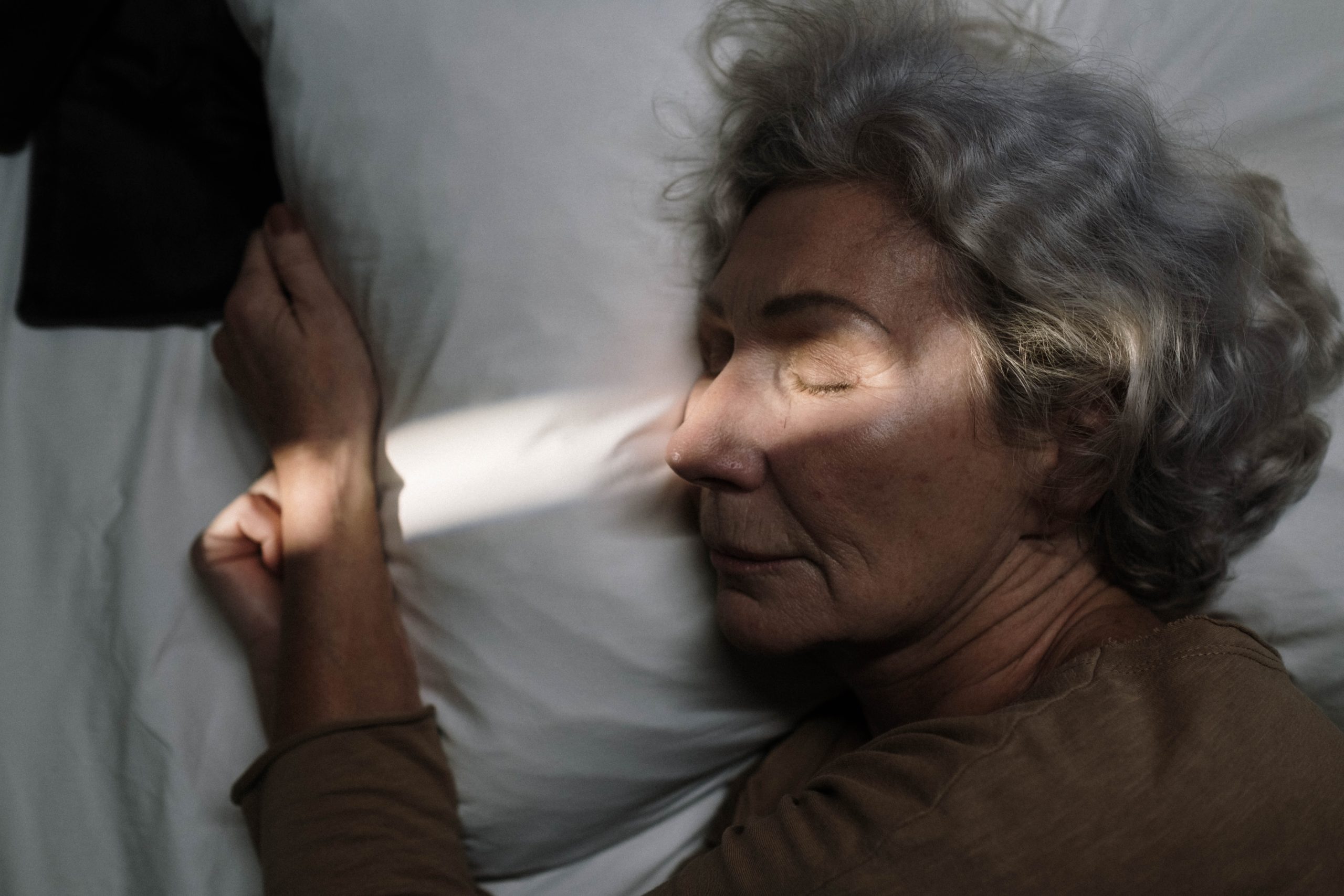Sleep Changes in Older Adults

Sleep patterns naturally evolve with age, so it’s common for seniors to feel more tired in the evening, wake up earlier in the morning or experience disrupted sleep through the night. In many cases these are normal changes caused by lower melatonin levels—or the hormone that promotes sleep—and an increased sensitivity to variations in one’s environment like noise and light.
If sleep is becoming more difficult and you routinely feel tired, it’s important to first rule out any underlying causes like a sleep breathing disorder, restless leg syndrome, anxiety, chronic pain, or side-effects from medication. If there isn’t a medical reason for your sleep problems, adjustments to your environment and daytime habits should help you get the sleep you need.
Just like younger adults, healthy seniors should aim for 7-9 hours of quality sleep every night to improve concentration and memory, support the immune system and boost mood and energy levels. While you can’t change the way your natural sleep rhythms have changed, and it may take some experimenting to find what works for you, here are some ideas to help you get a good night’s rest.
Tips for Better Sleep
Set a Schedule
Aim to go to bed and wake up at the same time every day, even on weekends and on vacation. By sticking to the same sleep-wake pattern, your body will feel more ready to go to sleep and better refreshed when it’s time to start the day.
Create the Right Environment
Make sure that your room is quiet, dark and cool. Use a sound machine, ear plugs or a sleep mask to cut out noise and light interruptions if necessary. You may find it helpful to remove your digital clock as the light can be disruptive and watching the time tick away can create further sleep anxiety.
Wind Down
Develop a nighttime routine to follow each night to let your body know that it’s time to sleep. What’s soothing for someone else may not work for you, but a warm bath, deep breathing, quiet music, a good book or essential oils are some ideas to get you started.
Put Away Screens
Avoid watching television or reading on your tablet or phone at bedtime. Research shows that the light these devices give off can make it more difficult to fall asleep. Devices should ideally be stored outside of the bedroom, unless they are needed for safety reasons.
Be Aware of Daytime Naps
If restless nighttime sleep is leaving you tired in the day, a nap can give you the energy you need to push through. Just try to limit naps to thirty minutes, only rest earlier in the day and if you find that naps are making you less sleepy at bedtime, avoid them all together.
Stay Active
To help you feel tired in the evening and to improve your overall health, find ways to be active every day. Regular exercise also releases endorphins that promote restful sleep, as long as you stop at least three hours before bedtime. As always, speak to your doctor before starting any new exercise program. Boredom can also make older adults feel tired during the day, so try to do more of the things that you love and stay social.
Watch Your Fluids
Limit your caffeine intake, particularly in the eight hours before going to sleep. You should also stop drinking fluids within two hours of your bedtime to minimize bathroom trips that can disrupt your sleep. Although alcohol makes you initially sleepy, avoid it close to bedtime because when the effects wear off, you’ll be more likely to wake up.
Talk to a Doctor
If you’re still experiencing poor-quality sleep and are often tired and sleepy even after making these changes, there are treatments that can help. Reach out to your doctor again and ask about a referral to a sleep specialist. Remember that getting older doesn’t mean feeling tired all the time and sleep issues need to be addressed so they won’t affect your overall mood and health.
You may also like:
